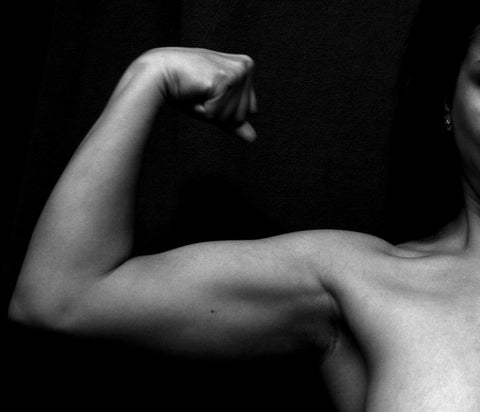How Does the Body Store Excess Protein?

When it comes to fueling our bodies—from cognitive function to motor skills—we need a few critical macro nutrients: fat and carbs. You know glucose more likely as the sugars aka “dreaded carbohydrates.” And while fat has proven its worth in our diet, there are still public misconceptions about healthy fats and just how much we really need. But what about protein? Where does protein in the diet fit into the equation in boosting our body’s energy? Can we convert excess protein into sugars?
Protein, while not as key an energy source as carbs or fat, does play an important role in maintaining our energy levels by serving as the building block for healthy muscles and hormones that keep the body strong and balanced.
When we eat protein—be it from a steak, yogurt, an almond, or a lentil—it’s broken down into amino acids, which the body then essentially builds back into our protein. The protein in our body does different things as mentioned above, but in essence, you can think of protein kind of like the Internet for your body—it’s a system of transportation that keeps your body connected to itself. Protein ensures cellular communication and moving molecules around, like in building muscle fiber.
If the body is low on glucose or fat—our two primary sources of energy—it can use protein to create energy. But this typically comes at a cost: muscle loss chief among them. Your body will consume muscle mass to fuel brain and basic body functions. This is why a pure protein diet isn’t ideal, despite what cavemen may have told you.
The good thing here is that many proteins come connected to another macronutrient: fat or carbs. So if you’re downing a protein-rich whey smoothie (which, of course, we hope you are), you are also giving your body the fat (and possibly carbs) it needs to fuel your energy, as well as the protein to keep your system in a healthy condition.
As always, the food choices you make impact how they affect your body—a processed, poor-quality protein is harder for your body to understand and use. Those refined sprinkles-covered carbohydrates or the deep-fried kind also don’t do the body too many favors aside from a purely caloric gain, if not the dopamine rush from the sugars…So make your food choices healthy—and balanced.
Pair high-quality proteins with high-quality carbs and fats and keep them in balance. If you’re pregnant or strength-training then those are times to add more protein into your diet—and watch your carbs—but stay the middle path and keep a healthy balanced diet on your plate.
Image: boemski
Leave a comment
Comments will be approved before showing up.


